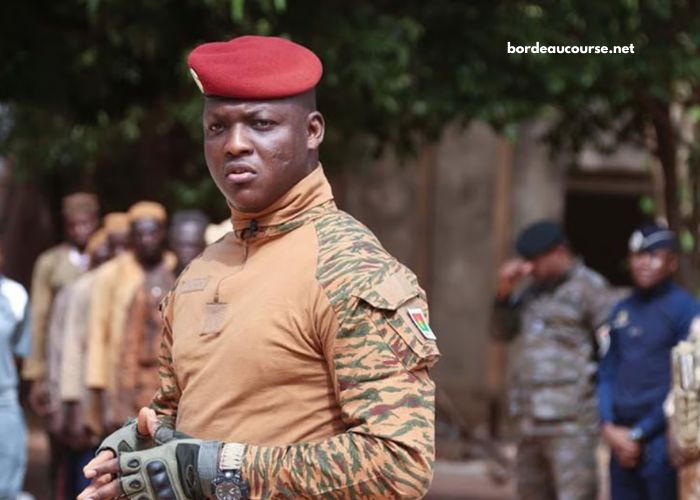Burkina Faso is currently at a pivotal moment in its history, navigating challenges across its political, economic, and social landscapes. With increasing global attention, the country’s situation demands informed and accurate analysis.
Actualité Au Burkina Faso Aujourd’hui includes not only government strategies and security updates but also the voices of citizens and grassroots efforts aiming to restore stability and growth. From protests to progress, everything shaping the country’s future is unfolding rapidly.
What Is The Current Political Situation In Burkina Faso?
The Actualité Au Burkina Faso Aujourd’hui reflects a politically volatile environment, driven largely by ongoing military transitions and public dissatisfaction. Since the coup d’état in 2022, Captain Ibrahim Traoré has held power, promising reforms and a shift in governance, but skepticism among the population remains high.
The transitional government under Traoré has yet to fulfill many of its promises, and concerns are growing over the timeline for returning to civilian rule. As part of the Actualité Au Burkina Faso Aujourd’hui, many citizens and international observers continue to press for greater transparency and a clearer roadmap for democratic elections.
The international community is closely monitoring the Actualité Au Burkina Faso Aujourd’hui, especially in terms of human rights and the role of the military in politics. Relationships with ECOWAS and France remain tense, while Burkina Faso leans into new alliances, including deeper ties with Russia and neighboring military-led regimes.
Domestically, trust in government institutions remains fragile. Public forums, civil society organizations, and opposition voices are all active in the Actualité Au Burkina Faso Aujourd’hui, seeking accountability and inclusion in political decision-making processes.
How Is Insecurity Affecting Daily Life In Burkina Faso?
Security is one of the most critical aspects covered in the Actualité Au Burkina Faso Aujourd’hui, especially due to the persistent threat of extremist violence in the northern and eastern regions. Groups affiliated with Al-Qaeda and ISIS have made daily life dangerous for millions, leading to mass displacements and loss of livelihoods.
Attacks on villages, military outposts, and convoys are frequently reported in the Actualité Au Burkina Faso Aujourd’hui, causing fear and instability across affected communities. The government’s military campaigns, while active, have struggled to fully reclaim these areas from insurgent control, leading to accusations of inefficiency and poor strategy.
Humanitarian needs are surging, with more than two million internally displaced persons (IDPs), and food insecurity rising across large swaths of the country. The Actualité Au Burkina Faso Aujourd’hui often highlights how access to education, healthcare, and basic services is limited or completely absent in conflict zones.
Residents are frequently forced to flee their homes, abandoning farms and livelihoods, as reported throughout the Actualité Au Burkina Faso Aujourd’hui. Civilian resistance groups have also emerged, adding complexity to the situation as the lines between combatants and non-combatants become increasingly blurred.
What Role Does The Media Play In Burkina Faso Today?
Freedom of the press remains a contentious issue in the Actualité Au Burkina Faso Aujourd’hui, with journalists facing increased restrictions and risks. State-run media often echo the government’s stance, while independent outlets operate under threat of censorship or closure.
International media presence in Burkina Faso has diminished due to visa restrictions and safety concerns, but local journalists continue to play a crucial role in shaping the Actualité Au Burkina Faso Aujourd’hui. They provide grassroots reporting that sheds light on stories often ignored by official narratives.
Arrests and detentions of journalists are becoming alarmingly frequent. The Actualité Au Burkina Faso Aujourd’hui has featured several cases where media professionals were accused of inciting unrest or collaborating with foreign entities, which has sparked debates about press freedom.
Despite the risks, digital platforms and social media are growing as primary channels for disseminating the Actualité Au Burkina Faso Aujourd’hui. Youth and civil society actors are leveraging these tools to share real-time updates, challenge official stories, and organize advocacy campaigns.
How Is The Economy Responding To The Country’s Crises?
Economic challenges are central to the Actualité Au Burkina Faso Aujourd’hui, with inflation, unemployment, and currency pressures significantly affecting households. As the conflict displaces millions, agricultural production has plummeted, while transport and trade routes have been severely disrupted.
Government revenue has been affected by reduced tax collection and the need to redirect funds toward military and humanitarian efforts. The Actualité Au Burkina Faso Aujourd’hui often reports on rising living costs, especially for basic staples like rice, millet, and cooking oil, which are now unaffordable for many.
Foreign investment has dropped sharply, largely due to security risks and uncertainty about future governance. This trend is a common theme in the Actualité Au Burkina Faso Aujourd’hui, as international development agencies struggle to maintain operations amid deteriorating safety conditions.
The informal sector, which employs the majority of the population, is under pressure. Many daily wage earners featured in the Actualité Au Burkina Faso Aujourd’hui have lost their sources of income, while small businesses are closing down due to low consumer spending and rising supply costs.
What Social Movements Are Emerging Across The Country?
Citizens are increasingly vocal in the Actualité Au Burkina Faso Aujourd’hui, participating in demonstrations, community defense initiatives, and grassroots humanitarian work. Social movements are rising in urban and rural areas alike, often sparked by government inaction or inadequate response to crises.
The most visible movements revolve around demands for security, justice, and access to basic services. The Actualité Au Burkina Faso Aujourd’hui covers these protests and campaigns extensively, showing how youth and women’s groups are taking leadership roles in calling for systemic change.
Civil society has been mobilizing to fill the gaps left by the state, providing food, shelter, and support to displaced families. These community-based efforts, as highlighted in the Actualité Au Burkina Faso Aujourd’hui, are gaining traction and recognition despite limited funding and logistical support.
In regions hardest hit by conflict, local initiatives are also working on reconciliation and dialogue, trying to rebuild trust among divided communities. The Actualité Au Burkina Faso Aujourd’hui often features these peacebuilding efforts, emphasizing their role in long-term stability.
What Is The Future Outlook For Burkina Faso?
Speculation about the future is a constant theme in the Actualité Au Burkina Faso Aujourd’hui, with analysts and citizens alike questioning what lies ahead. Will the country transition back to democratic rule? Can security be restored? These questions remain unanswered, but hope persists.
The government continues to promise reforms, and some sectors of society are cautiously optimistic. The Actualité Au Burkina Faso Aujourd’hui captures these mixed sentiments, portraying a population that is resilient, yet wary of repeated cycles of instability.
Regional alliances, such as the military partnerships with Mali and Niger, suggest a new geopolitical direction. However, the Actualité Au Burkina Faso Aujourd’hui also reports concerns about isolation from ECOWAS and the broader international community, which could hinder recovery efforts.
What’s clear is that the road ahead is complex. The Actualité Au Burkina Faso Aujourd’hui will continue to reflect the hopes, fears, and struggles of a nation in flux, providing real-time documentation of a people determined to reclaim their future.
Conclusion
In summary, Actualité Au Burkina Faso Aujourd’hui serves as a critical lens into the realities of a country at a crossroads. With political upheaval, persistent insecurity, and economic hardship defining daily life, this news coverage remains vital for understanding the multifaceted challenges facing Burkina Faso.
Amid chaos, however, the strength of civil society and the resilience of its people shine through. As events continue to unfold, staying informed through accurate and comprehensive reporting will be essential to supporting recovery, reform, and a sustainable path forward.



